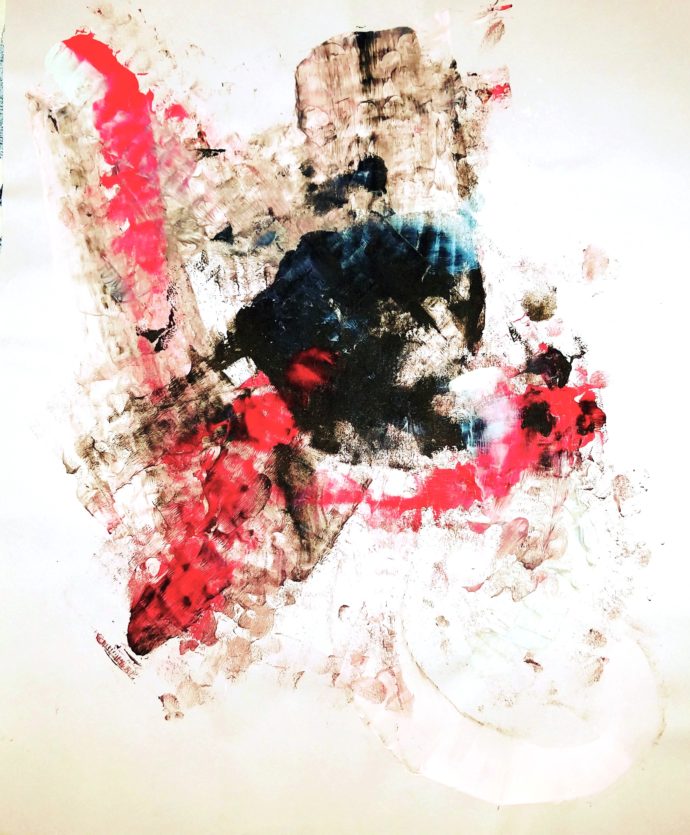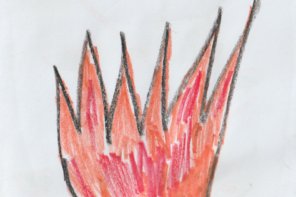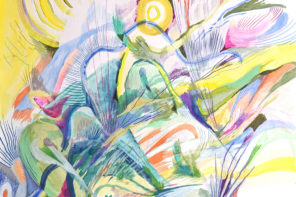The Shores of Faith
after Luke Kennard
I dream we live in a tiny coastal house, held together with pieces of plastic, cardboard and bricks, overlooking the sea. It was the only nice part of town my mother could afford. Even though she wanted to make us happy, the times were difficult, and mostly because I felt a part of her was lost to the realm of fantasy, of hope (without recourse to borrowing). She keeps telling my father’s sisters: we are good, they are so good, we are doing fine… oh that convergent seconds were gut more than luck made me ask: I can’t remember what was it she said but I knew our pace was slow until it wasn’t. But I have to say for five mornings I saw my mother make living beautiful every time she raises her voice to whistle a happy tune in Malagasy—the sky changing its grammar to match the imagination in her eye and it did: a wet green field with its new colors blooming in summer.
Periwinkles
for Ogoni Massacre, 1995
You see; I was in my bed, around my backyard, Ogoni was falling. There are no windows from which I did not see the village burning and bodies belly-up in oil- stained rivers. Hawks are flying high above the barren swamplands where my child- hood use to be. There is no other way to say it. I mean something about all those memories under glass– I mean how we fell – I mean bangs and the ghosts curling itself out from the cave in my mouth. A country is a place where everything is home and nothing is a bullet. Here are some ways in which I am not free: the earth loosened and I am so much salt, grains washed at the shore, drawn out and pushed in like the inquisitive chin of a child. This is how it is about us: it is never enough to be born black and a minority. I take a wooden bench outside and watch the shorebirds gaze at us – the coincidence of fear and worry. Even if there were gods what could they do about the whole rot of human greed? Wreckage is the first clear thought most people have when they come here. Again, for the last time: every wound point to the same place – too many pieces of dove splitting at the seam – a burden of proof and I sit on my grandmother’s flair for language like a solitary bird. The damages on her fishponds are widely reported. And if I could remember anything that's here now: it will be the cattle egret I followed with my eye, covered in oil sheen – blackened from its legs up to its neck – something we say of the sky inside us, which is why one might say it was not necessarily the gift that was our bane, although, it is sometimes, but how it was misuse and delivered to our door step as stench.
Portrait At 19
after Kamilah Aisha Moon
The wall clock in my room still ticks. And the years always look the same. My hands have become small passerine birds. And when the music plays, I listen to the injuries, and not the cricket. I take the shape of carved elephant tusk. The earth is warmer and my mother is dead. Joy is difficult and each day I am insatiable. Another morning, I am different and my thoughts become houses. Don’t talk to me about love, or what I am incapable of. I placed my ancestors upon the waters and then a gooseneck sprite appears. How many times I’ve wanted to relish the past. I smiled all the times I felt pained or cheated. My skin as envelopes as a whole bundle of lotus flowers. Often times I’ll say I didn’t know it then—how life works, my sorrows without sail or forfeiture.
Ojo Taiye is a young Nigerian writer who uses poetry as a tool to hide his frustration with society. Taiye’s most recent work is largely concerned with the effects of climate change on homelessness, migration, drought, and famine, as well as a range of transversal issues ranging from racism, black identity, and mental health. His projects explore neocolonialism, institutionalized violence, and ecological trauma in the oil-rich, polluted Niger delta. His poems have been published or are forthcoming in Salamander, Consequence Forum, Stinging Fly, Rattle, Cincinnati Review, Banshee, Willow Springs, Lambda Literary’s Poetry Spotlight, Fiddlehead, Puritan, Frontier Poetry, Notre Dame Review, and Strange Horizon. Taiye has worked on the exhibition “Future(s) 2021” with Catalyst Arts and Belfast Photo Festival, the Scene Stirling COP26 Project, and the 2021 Sustran Black History Month Art Project.




